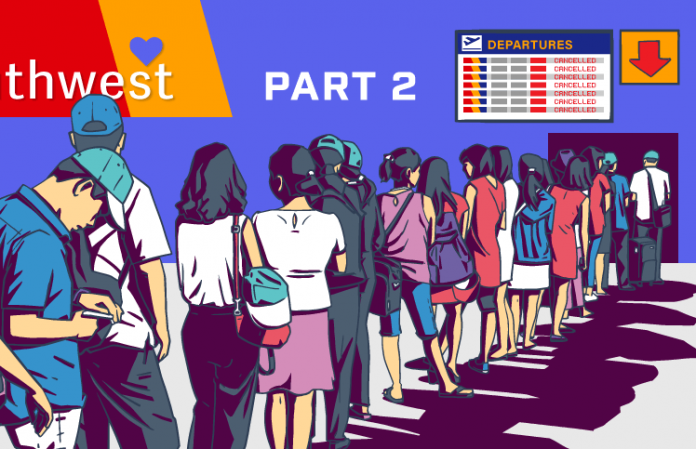
When the customer experience (CX) fails, both the product and the service, but critically the customer service (see my recent blog No Excuses for Poor Disaster CX), there are essential steps to take to ensure an improved CX the next time. These are:
- Apologize to the customers.
- Swiftly and effectively compensate them for the hassles and inconveniences the customers endured.
- Acknowledge the problem(s).
- Promise to examine the causes and assure that as much as humanly possible you will try to prevent them or lessen their effects if or when they do occur again.
The hard fact is that there are those matters you can control, like how you make or deliver your products and services on your end, and most critically how you communicate with your customers.
But there are other matters that you can’t completely or partially control: like disasters and the actions of third-party providers, especially those that your company is beholden to, like the freight railroads that VIA Rail Canada (and Amtrak in the U.S.) mostly depend on to carry their passenger trains.
In the case of VIA Rail, it did offer an apology and an explanation following its holiday travel nightmare, worsened, according to reports (like from the CBC) by its apparently poor customer communications.
How effective will these actions be? More importantly, will there be successful follow up measures and yes, investments, to ensure these issues won’t happen again to retain VIA’s understandably dissatisfied customers? This remains to be seen.
The Canadian federal government has funded, and VIA Rail is taking delivery of modern, reliable equipment. And it has promised to build a new passenger rail line between Toronto and Ottawa, the nation’s largest city and its capital respectively, on a combination of mostly abandoned and lightly used tracks with minimal freight train traffic.
What you DO NOT want to do is (a) portray, no matter how unintentional, the CX differently than what your customers have experienced and (b) go on the defensive: like openly or being seen to blame the governments that regulate your business because your upset customers will see that as deflection. Politicians’ careers depend on being noticed and using companies that customers i.e., the voters are upset with as punching bags has long been an effective means of achieving that goal.
Yet judging from a Daily Hive article in Canada both (a) and (b) appear to have occurred at a House of Commons committee meeting on the holiday travel debacles, which could diminish the positive impacts of the apologies.
While both (a) and (b) may well be the case you must handle these matters carefully. In the case of (b) that means a “softly, softly” but equally effective approach. One that may entice governments to act so that your business and most importantly your customers will have a better CX in the future.



